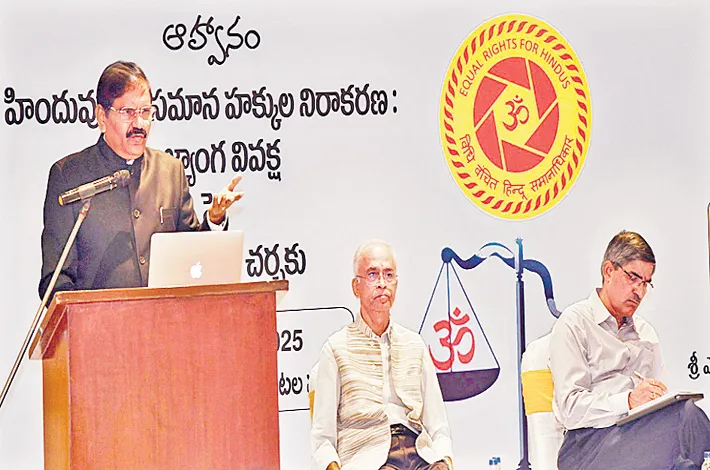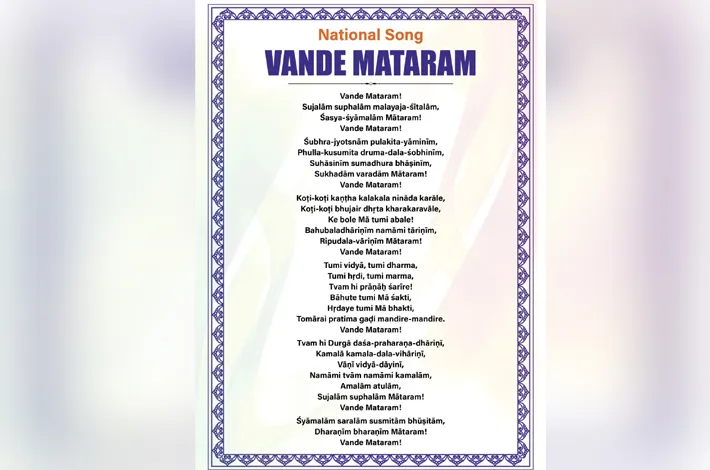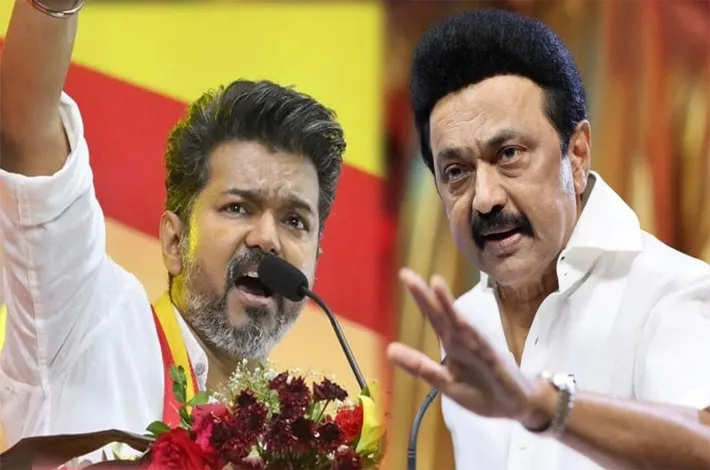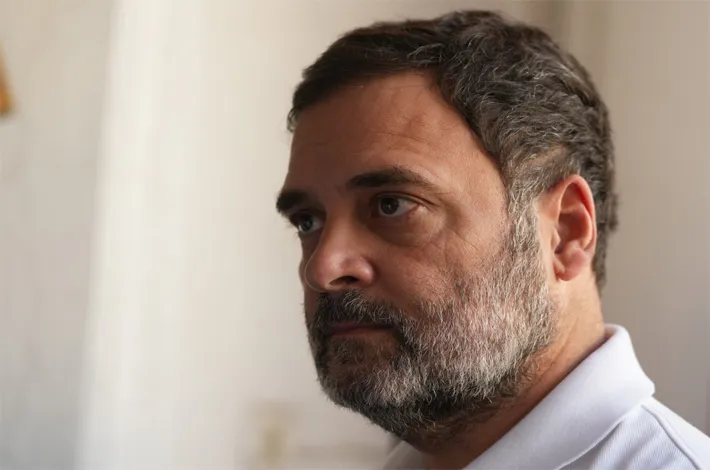Urgent call to amend religious rights laws
12-10-2025 12:00:00 AM

In a powerful discussion that laid bare constitutional imbalances, former CBI Director M. Nageswara Rao, ex-DGP of united Andhra Pradesh K. Aravinda Rao, and former Chief Secretary L.V. Subramanyam asserted that Hindus face systemic denial of equal rights in India. The event, held at the Film Nagar Cultural Center on Saturday and titled "Constitutional Bias: Denial of Equal Rights for Hindus," drew journalists and thinkers who echoed the speakers’ warning: “Hindus are being treated unequally in their own country.”
Demand to Amend Articles 25-30
At the heart of the discussion was a demand to amend Articles 25 to 30 of the Constitution, which currently govern religious freedom and minority rights. M. Nageswara Rao argued these provisions disproportionately benefit Muslims and Christians in education and religious management, leaving Hindus at a disadvantage.
“We’re not against any religion,” said Rao. “We seek equal rights—not special privileges. Minorities sit on chairs while Hindus sit on the floor. Amend the Constitution and give Hindus an equal seat.”
Rao recalled former MP Syed Shahabuddin’s effort to introduce a private member’s bill to extend equal rights to Hindus and warned that without urgent changes, Hinduism may not survive unchecked proselytization.
Hindus denied knowledge of heritage
A key concern raised was the exclusion of Hindu teachings from mainstream education. While minorities can run religious institutions freely, Hindus face legal and institutional barriers. “Hindus don’t study the Vedas or Dharma,” Rao noted. “Muslims and Christians are taught their scriptures early on. But Hindus, many of whom I call HINOs—Hindus in Name Only—remain ignorant and declare ‘all religions are equal.’ No other religion says that.”
L.V. Subramanyam and Aravinda Rao both emphasized the need to include Hindu dharma in school curricula. “Foreigners proudly teach their ancient history,” said Aravinda Rao. “But here, we avoid the Vedas. They’re not religious texts—they are a way of life.”
Population decline and conversions
The speakers raised alarm over unregulated religious conversions, which they claimed are rapidly eroding Hindu demographics. Rao stated, “Hindu population was 84% in 1950; it’s down to 70%. At this rate, by 2040 a Hindu Prime Minister may be hard to imagine. By 2050, forget it.”
He blamed lopsided legal frameworks that discourage Hindus from evangelizing but allow it for others. Rao also mentioned errors in census data and pointed out that Hindus are already minorities in over 200 districts. He cited conversions for migration—like Punjabis turning Christian to move to Canada—and a low Hindu birth rate (1.9%, below the replacement rate).
“Even communists wouldn’t survive without Hindus,” Rao quipped, urging immediate corrective action.
Government control of temples
One of the most contentious issues raised was government control over Hindu temples. Rao revealed that over 2 lakh temples across India are under state control, unlike mosques and churches.
“Temples are treated as revenue sources. Governments charge for darshan, enforce VIP systems, and misuse temple wealth for unrelated welfare schemes. This doesn’t happen to any other religion,” he said.
Subramanyam cited massive land takeovers—25 lakh acres in Tamil Nadu and 15 lakh in Andhra Pradesh. “Devotees donate out of faith, but governments treat temple assets as their own. Even offerings to TTD (Tirumala Tirupati Devasthanams) are appropriated.”
He criticized courts for controversial rulings and governments for not compensating Hindu institutions. “Speaking for Hindu rights earns you labels—BJP, RSS, communal. But protecting temple lands is a secular responsibility,” he added.
The panel called for a new Temple Act to free Hindu temples from state control and ensure temple funds support dharmic education and traditions.
True secularism or hidden inequality?
Throughout the session, speakers emphasized that India's secularism often hides systemic religious inequality. Aravinda Rao referenced past legislative attempts like the Communal Violence Bill, saying they presumed Hindu guilt. Rao quoted PM Narendra Modi—“One hand with the Quran, one with a computer”—to show how state support is often tilted.
“Today, Hindus only have civil rights. Minorities enjoy fundamental rights,” said Rao. “This is not secularism—it’s appeasement. We must awaken the Hindu majority and demand equality.”
The event concluded with a call for awareness drives across Telugu states and India, to educate the public on the need for legal and institutional reform to protect the rights of the majority.
“This isn’t about supremacy,” said Aravinda Rao. “It’s about equality. True secularism can’t ignore the grievances of the majority. If it does, it risks fracturing the foundation of our unity in diversity.”








